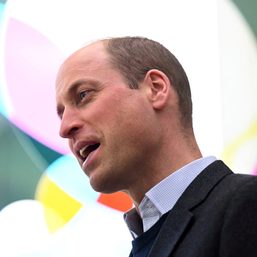SUMMARY
This is AI generated summarization, which may have errors. For context, always refer to the full article.

Britain’s economy shrank by one-fifth in the 2nd quarter, more than any European neighbor, as the country’s coronavirus lockdown slammed businesses and plunged the country into its deepest recession on record, official data showed on Wednesday, August 12.
“It is clear that the UK is in the largest recession on record,” the Office for National Statistics (ONS) said after gross domestic product (GDP) contracted by 20.4% in the period from April to June.
A recession is defined as two consecutive quarterly contractions and the British economy already shrank by 2.2% in the first 3 months of this year.
It is Britain’s first recession since 2009 and the performance is the worst of the so-called Group of Seven richest countries in the world over the same period.
By comparison, France‘s economy contracted by 13.9% in the 2nd quarter, Canada by 12%, Germany 10.1%, the United States 9.5%, and Japan 7.6%.
Looking at the first 6 months of 2020, Britain’s performance “was slightly below the 22.7% seen in Spain, but was more than double the 10.6% fall in United States GDP over this period,” the ONS said.
The statisticians attributed Britain’s dire 2nd quarter to a 20% drop in output in April – “the biggest monthly fall on record reflecting widespread…declines in output across the services, production, and construction industries.”
‘Hard times’
Finance minister Rishi Sunak said the data “confirm that hard times are here.”
He added, “Hundreds of thousands of people have already lost their jobs, and sadly in the coming months many more will.”
Sunak, whose official title is Chancellor of the Exchequer, plans to end in October the government’s furlough scheme that is paying up to 80% of wages for nearly 10 million workers.
The UK – which has the highest death toll in Europe from the coronavirus – appears to be paying a heavier price for locking down later than its continental neighbors.
The British economy also relies more heavily on the hard-hit services sector than other European countries.
Rebound begins
While officially in recession, the UK economy is beginning to rebound as the government eases strict confinement measures.
ONS calculated that GDP grew by 8.7% in June as the economy slowly emerged from the lockdown implemented in late March.
That helped the pound to limit losses on Wednesday, while London’s stock market was up 1.3% in afternoon trading.
“The economy began to bounce back in June, with shops reopening, factories beginning to ramp up production, and house-building continuing to recover,” noted Jonathan Athow, deputy national statistician at the ONS.
“Despite this, GDP in June still remains a sixth below its level in February, before the virus struck.”
Rising unemployment
To help the economy recover, the Bank of England (BoE) is pumping out hundreds of billions of pounds in cash stimulus and has slashed its main interest rate to a record-low 0.1%.
“The substantial fiscal and monetary stimulus that has been enacted should provide ongoing support to the economy,” EY economist Howard Archer said.
“Although the economy is expected to achieve appreciable growth in the 3rd quarter…the rate of expansion will slow in the 4th quarter as unemployment rises following” the end of the furlough scheme.
Around 730,000 workers have been removed from the British payrolls since March.
Announcements of job cuts have become a daily occurrence, with department store chain Debenhams axing 2,500 posts on Tuesday, August 11.
The BoE expects the unemployment rate to hit around 7.5% by the end of the year from 3.9% currently.
And it forecasts that the British economy will have contracted by 9.5% for the whole of 2020.
Nevertheless, the BoE estimates that growth will rebound by 9% in 2021.
“A labor market crisis or another strong rise in [virus] infections could quickly knock this fragile recovery off course,” said City Index analyst Fiona Cincotta. – Rappler.com
Add a comment
How does this make you feel?


![[Time Trowel] Evolution and the sneakiness of COVID](https://www.rappler.com/tachyon/2024/02/tl-evolution-covid.jpg?resize=257%2C257&crop=455px%2C0px%2C1080px%2C1080px)







There are no comments yet. Add your comment to start the conversation.